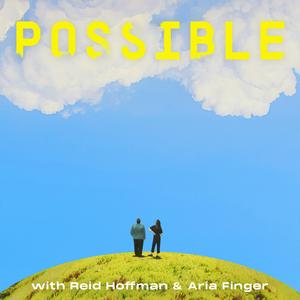Andrew Bosworth on AI, wearables, and mixed reality
The evolution of AI is changing the way we interact with the physical world, not just in how we use this technology, but also where and how we access it.
In this episode, Reid and Aria sit down with Meta’s Chief Technology Officer, Andrew “Boz” Bosworth, who is pioneering wearables for the company. Boz’s journey in the tech sector has taken him from working on Microsoft Visio to founding Reality Labs, Meta’s AR and VR division. Now, he’s focused on the next frontier in mixed realities with his latest project, Orion, a pair of AR glasses. Boz offers an Orion demo and shares his vision for wearables as an equalizing technology that can unlock superpowers for every person. Plus, they check-in on the state of AI as it relates to open source software, safety, hyperscalers, and startups.
For more info on the podcast and transcripts of all the episodes, visit https://www.possible.fm/podcast/
Topics:
1:03 - Episode introduction
3:36 - How Boz’s farm upbringing influenced his career and perspective on the digital world
7:02 - How will wearables influence how we navigate the physical and digital worlds?
9:46 - Meta's AI philosophy
11:27 - Pi explains Norbert Wiener's construct of information theory
14:28 - What would it take to build AI world models?
15:09 - What are the most significant use cases for Orion?
19:01 - Can Orion accommodate monocular vision?
20:00 - Boz's response to Orion skeptics
22:29 - Boz gives predictions on our AI future
25:09 - What would it look like to have a compatible system of wearables?
27:30 - Unexpected discoveries from Orion testing
29:33 - What is Meta's focus in the AI space for the years to come?
30:48 - How do we ensure that AI innovation is used for good?
35:28 - Boz responds to Meta's changes in fact checking policy
37:11 - How will hyperscalers and start-ups flourish in the AI game?
40:06 - Boz shares his review on “The Wild Robot”
42:24 - Rapid-fire questions
Select mentions:
The Martian by Andy Weir
Project Hail Mary by Andy Weir
I Am a Strange Loop by Douglas Hofstadter
J. C. R. Licklider, psychologist and computer scientist
Douglas Engelbart, engineer and computer science pioneer
Norbert Wiener, computer scientist and mathematician
Yann LeCun, computer scientist and Chief AI Scientist at Meta
Michael Abrash, Chief Scientist, Reality Labs, Meta
Garry Kasparov, Russian chess grandmaster
4-H, a youth development program from the USDA
The Biometric Information Privacy Act (BIPA)
Qualified Business Income Deduction (QBI)
Possible is an award-winning podcast that sketches out the brightest version of the future—and what it will take to get there. Most of all, it asks: what if, in the future, everything breaks humanity's way? Tune in for grounded and speculative takes on how technology—and, in particular, AI—is inspiring change and transforming the future. Hosted by Reid Hoffman and Aria Finger, each episode features an interview with an ambitious builder or deep thinker on a topic, from art to geopolitics and from healthcare to education. These conversations also showcase another kind of guest: AI. Whether it's Inflection’s Pi, OpenAI’s ChatGPT or other AI tools, each episode will use AI to enhance and advance our discussion about what humanity could possibly get right if we leverage technology—and our collective effort—effectively.
